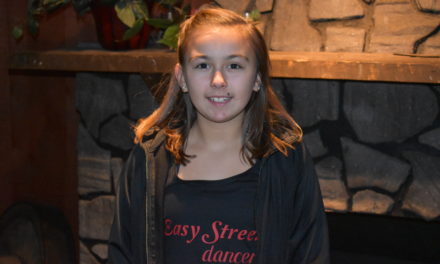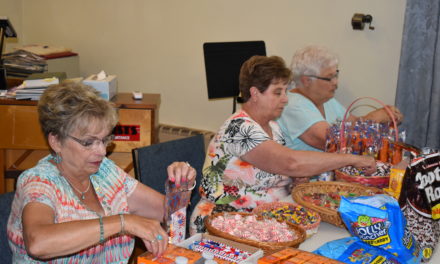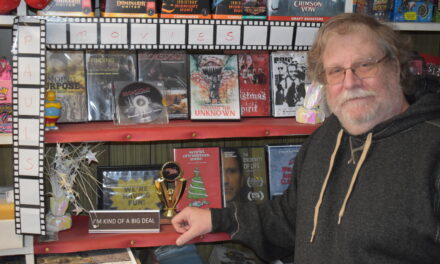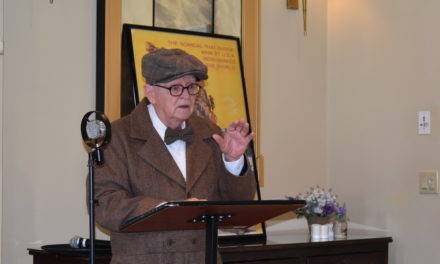When Phil Palombi moved to New York some 20 years ago, the jazz scene was thriving.
There were clubs everywhere, and every name jazz performer had to pass through the Big Apple, some of whom needed a bassist for the night.
My, how things have changed.
“No clubs in New York,” said Palombi, a Brookfield native and electric and acoustic bassist. “Things are kind of slowing down here.”
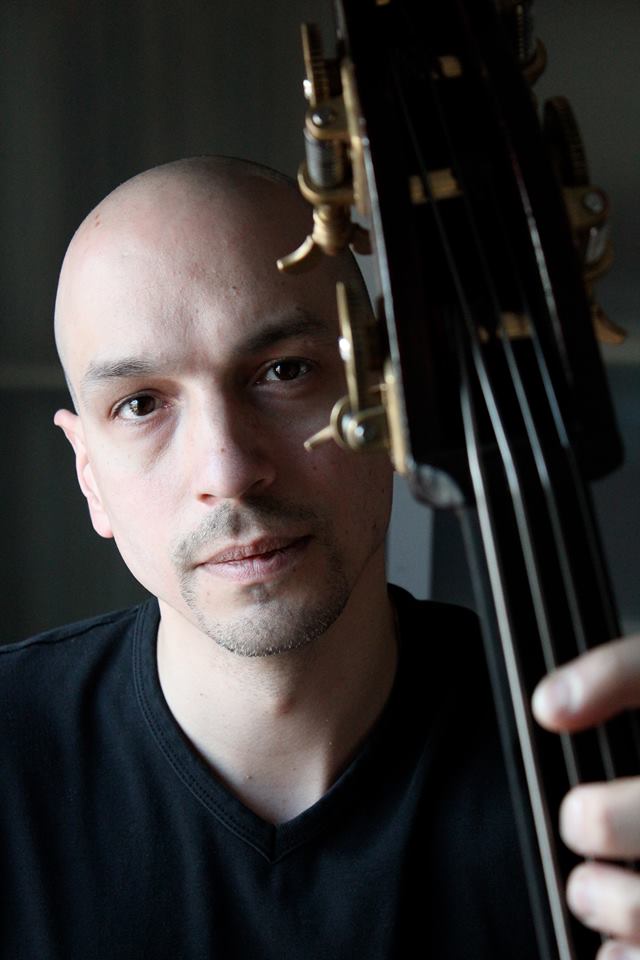 Many of the hole-in-the-wall nightspots that harbored jazz have become victims of neighborhood gentrification and cleanup efforts, and top players are moving to where the money is: pop and other forms of music, even though they can no longer command the kind of pay they once did.
Many of the hole-in-the-wall nightspots that harbored jazz have become victims of neighborhood gentrification and cleanup efforts, and top players are moving to where the money is: pop and other forms of music, even though they can no longer command the kind of pay they once did.
For Palombi, that means he has had to take his show on the road, playing for Michael Feinstein and Manhattan Transfer.
The 48-year-old musician, whose resume includes work with Curtis Stigers, Maynard Ferguson’s Big Bop Nouveau Band and the Tommy Dorsey Orchestra, sees his work as part art and part craft.
The craft part is when he gets a gig playing for someone else. He is supposed to show up on time, get along with everybody else and play the notes expected of him. He doesn’t get to take solos or express who he is as a musician, but he can pay his bills and play music doing it.
For the art part, Palombi plays with his bands (718), an electric piano-bass-drums unit that merges jazz, rock, funk and whatever else inspires them that day; Tri-Fi, an acoustic trio; and occasional solo gigs. He can’t make what Feinstein is willing to pay him, but he gets to shape the music and show what he has learned technically and display his own musical style.
In balancing art and craft, Palombi also balances the demands of a working musician who spends about half of his time on the road with the demands of being a parent to a 16-year-old daughter, Lara, and a 12-year-old son, Lorenzo, and the desire to spend time with his dad, Rich, who still lives in Brookfield.
“When I come home, I try to spend as much time as I can with my kids,” he said, noting that he also tries to hook up with his dad, who is his motorcycle-riding partner, about once a month.
His mom, Carol, died in 2015.
Those demands have left him thinking about whether he needs to make a change in his career as a professional musician, and he has decided he would like to move into academia, teaching at a college, if the right position opens up.
Although he probably won’t make a concentrated effort to get a teaching job until after his son is college-age, he has someone in mind to model himself after: his college professor and bass teacher, Tony Leonardi, who started the jazz program at the Youngstown State University Dana School of Music, where Palombi studied.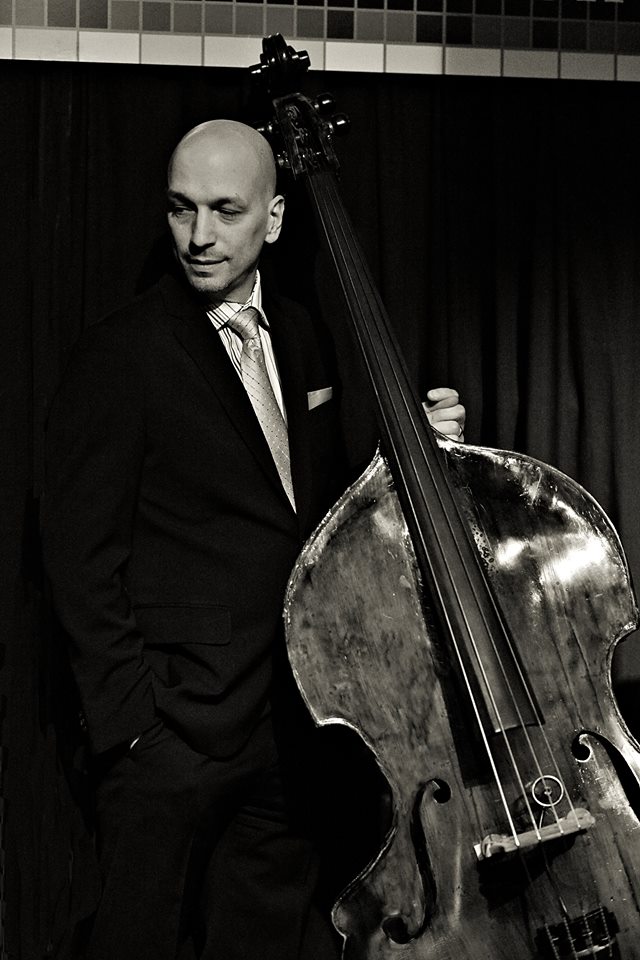
Palombi is one of a handful of Dana alums, all working musicians, who will perform at a 2 p.m. Sept. 16 concert at DeYor Performing Arts Center, Youngstown, honoring Leonardi and the 150th anniversary of Dana.
“That’s going to be special for me,” Palombi said, for several reasons, not the least of which is the debt he feels he owes Leonardi.
“Tony was a second father to me,” said Palombi, who will play an acoustic bass that was Leonardi’s at the show. “I was always attached to Tony.”
Leonardi gave praise when he thought it was due, but also was brutally honest in his estimation of a student’s ability and commitment. Palombi uses the phrases “tough love” and “fire and brimstone” to describe elements of Leonardi’s teaching style.
“He never let me slide on anything,” said Palombi, who played with the Youngstown and Greenville orchestras when he lived in Brookfield.
It was good training for when Palombi started getting work. When a fussy band leader lashes out for a bum note or an incorrect tempo, he or she couldn’t say anything that Palombi hadn’t already heard from Leonardi.
“I have never been phased by anybody,” Palombi said. “No one ever yelled at me more than Tony.”
Palombi said his goal was to please Leonardi, something that was tough to do, but also something that made him work harder. While Leonardi worked with Palombi on finger positioning, note selection and other technical details, Leonardi also inspired him.
“At the end of the day, that’s (inspiration) the most important thing you get,” Palombi said.
The Sept. 16 concert will feature an all-star cast: trumpeter Sean Jones, who has worked with Herbie Hancock and Wayne Shorter; saxophonist Ralph Lalama of the Vanguard Jazz Orchestra; pianist James Weidman, who has played with Max Roach and Woody Herman; and drummer Daryll Pellegrini, who has played with Chuck Mangione.
Palombi said he’s looking forward to seeing Pellegrini after a long absence.
When Palombi first moved to New York, Pellegrini mentored him in the ways of being a professional and making contacts that could lead to work.
“He gave me his number,” Palombi said. “He took me under his wing. He introduced me to people. He told me what to do and what not to do.”
Although Pellegrini and Palombi played together a lot in those days, Pellegrini’s move to Hawaii put a real dent in their musical collaborations.
“We haven’t played together in 15 years,” Palombi said.
Upcoming events for Palombi, who used to play regularly with Sharon guitarist Max Schang, include a Sept. 19 show with Feinstein at the Donnell Theater in Findlay; and a new album from (718), which will be released only on vinyl and by download.
On Aug. 30, singer Kat Gang released an album, “Come Closer,” which Palombi played on. Gang does regular Wednesday night shows at the Plaza Hotel in New York, a gig that harks back to New York’s jazz heyday.
“I think it’s New York’s last classy hotel gig,” Palombi said.
It’s also one of the last union gigs in New York, which, for Palombi, means, ‘I get dental (insurance coverage).”
- Home
- _Home
- About
- Advertise
- Contact
- Donate
- Find NEWS On the Green in print
- Latest
- Subscribe
- The legal stuff
- About
- Animals
- Arts/Entertainment
- Business
- Cemetery
- Church news
- Community
- Community service
- Comprehensive Plan
- Cool photos
- county news
- Domestic violence
- Drainage
- Elections
- Environment
- Guest column
- Health care
- History
- Housing
- Letter to the Editor
- Library
- News
- Police
- Politics
- Profile
- Property maintenance
- Racism
- Recreation
- Religion
- Rescue-Fire
- Sanitary sewers
- Schools
- Sports
- State
- Streets
- ToDo
- Transportation
- Veterans
- Water service
- Zoning
Select Page

